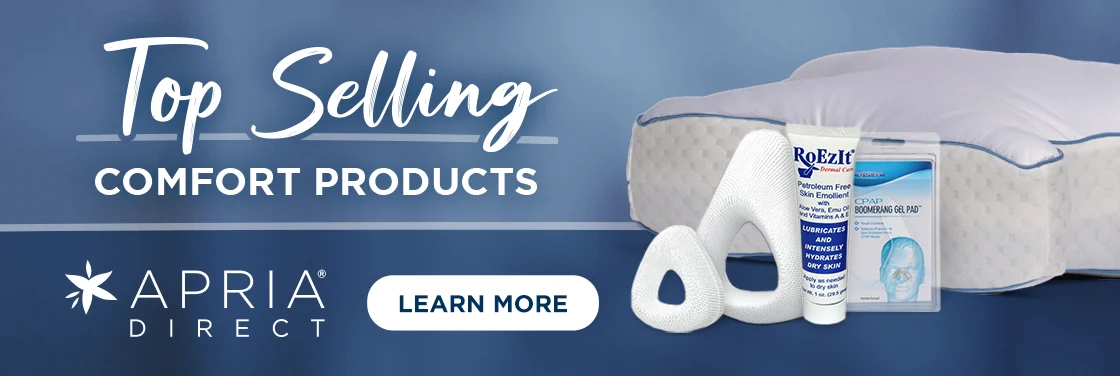ASK APRIA
Today's Clinician

Jimy Cazares
Jimy works with CPAP and respiratory patients in Southern California and has been a Registered Respiratory Therapist for 10 years. While Jimy is not at work, he enjoys spending time with his family and being outdoors, especially playing golf and fishing the local lakes near his home.
CPAP
Q. I’m going on vacation to a completely different climate – what do I do about the temperature setting of my hose and my humidifier setting? How do I know what they should change to, if at all? The last time I didn’t change them and it was really noticeable and impacted my sleep.
A. Good question! CPAP humidification is somewhat of a personal setting that will vary patient to patient. It can involve a lot of fine tuning to best suit your needs. So depending on the symptoms you are experiencing (nasal/oral dryness or congestion) you may want to increase your humidity and tube temperature. If you are experiencing water build up in your hose and mask, you may want to lower the humidity level and increase the tube temperature.
A good tip to remember is warmer months (warmer climate) won't require much humidity, which is the opposite for colder months (colder climate). So based on your travel destination, it will be a good idea to check the type of climate for the time of year, if you're going to a warmer climate you would probably reduce the humidity and vice versa for colder climates.
You mentioned setting the temperature on your CPAP hose, this means you have a heated hose. Most CPAP machines, when used with a heated hose, will have a manual setting that allows you to manually set your humidity level and your tube temperature, or will have an AUTO setting where the CPAP machine will automatically adjust your humidifier and tube temperature based on ambient conditions in your room. A good way to start is to leave it on the AUTO setting and let the unit make all the adjustments for you.
For more information: Don't lose sleep when traveling.
Q. Is there something you can wear that will protect your hair from the mask straps? My mask pulls at my hair and I’m concerned that regular pulling is going to cause bald spots.
A. A good way to prevent your mask headgear from pulling or grabbing your hair while you sleep is to use a hair cap or a bonnet. You can also purchase soft padding that goes over the headgear fabric, which will protect your hair from making direct contact with the mask straps.
Another tip is to keep your hair loose vs in a pony tail, braid or buns. By keeping it loose, this will help reduce the tension in your hair follicles. And finally, you can change the style of mask. Headgear straps will vary from mask to mask and trying a new style can help in reducing hair loss due to the friction caused by your current mask.
Q. What are mask liners and when do you need to use them?
A. Mask liners cover your mask cushion and form a barrier between your skin and your mask cushion. They are made of a soft stretchy fabric material that will help reduce skin irritation and can reduce or eliminate mask leaks. It's an effective product that can lead to a successful night's sleep. If you have sensitive skin or are having issues with a maintaining a good seal, a mask liner may be a good option for you.
For more information: CPAP accessories to help with comfort.
Q. Why does my CPAP machine shut off after an hour or so?
A. Your CPAP machine should not be turning off after an hour of use. There is something going on that is causing the unit to shut off during the night. There are a couple of things we can check to find a solution to your problem.
Check for leaks, make sure your mask is on securely, check your humidifier chamber to make sure it's flush against the CPAP unit and check your CPAP hose for signs of damage/tears.
If your CPAP unit is equipped with a feature called "SMART STOP or AUTO OFF" you can disable it. By doing so, your CPAP machine won't turn off thinking that you have removed your mask. Refer to your owner's manual to disable "SMART STOP or AUTO OFF" if this feature applies.
You can also check your power cord/power supply box to make sure there are no loose connections. If the issue persists after you have checked for leaks, adjusted your mask and checked all power connections, please call your local Apria branch and speak with a respiratory therapist so they can evaluate your CPAP machine.
Do you have a question for our Respiratory Therapists to be answered in a future email?
We want to hear from you!


